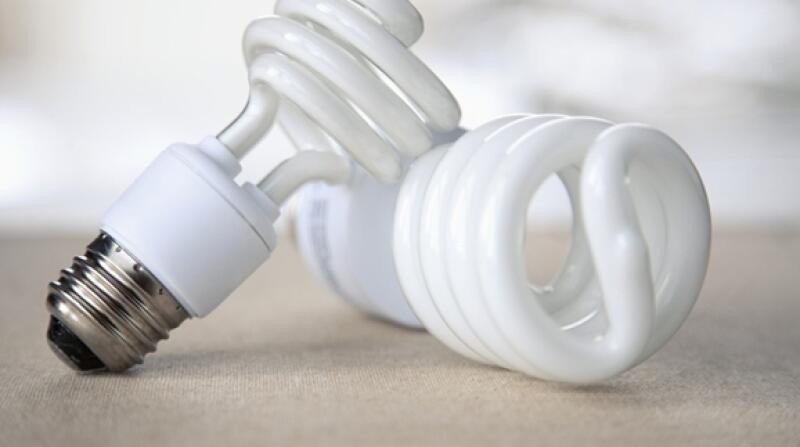11 Tips for Living With Lupus

Medically Reviewed By William C. Lloyd III, MD, FACS
Written By Paige Greenfield Fowler on September 14, 2022
Focus on these lifestyle changes and see what a difference they can make for people living with lupus.
-
 1. Quit smokingKicking the habit may have a greater influence on your lupus than any other lifestyle change you can make. While cigarettes are dangerous for everyone, they’re especially harmful to people with lupus, since they speed up and worsen the disease. Ask your doctor for tips to help you quit, and start reaping the benefits. The negative effects of smoking start reversing when you stop.
1. Quit smokingKicking the habit may have a greater influence on your lupus than any other lifestyle change you can make. While cigarettes are dangerous for everyone, they’re especially harmful to people with lupus, since they speed up and worsen the disease. Ask your doctor for tips to help you quit, and start reaping the benefits. The negative effects of smoking start reversing when you stop. -
 2. Get regular exerciseRegular exercise is important for everyone, but it has special benefits for people with lupus. Low-impact activities like swimming, walking, and bicycling can help with many lupus-related conditions. Exercise can protect your heart, prevent osteoporosis, reduce muscle stiffness, boost muscle strength, and relieve stress. Ask your doctor how much exercise you should be doing.
2. Get regular exerciseRegular exercise is important for everyone, but it has special benefits for people with lupus. Low-impact activities like swimming, walking, and bicycling can help with many lupus-related conditions. Exercise can protect your heart, prevent osteoporosis, reduce muscle stiffness, boost muscle strength, and relieve stress. Ask your doctor how much exercise you should be doing. -
-
 3. Get enough restAccording to the Lupus Foundation of America, 76% of people with lupus say fatigue has caused them to cut back on social activities. That’s why getting enough rest is so important.
3. Get enough restAccording to the Lupus Foundation of America, 76% of people with lupus say fatigue has caused them to cut back on social activities. That’s why getting enough rest is so important.
Aim for at least seven hours of shut-eye each night. Rest can reduce fatigue, but too much time in bed can make you feel even more tired. Figure out how much sleep you need to feel well. For a good night’s sleep, keep a regular sleep schedule, make your bedroom a sleep-only zone, and avoid food and physical activity close to bedtime. -
 4. Protect yourself from the sunToo much sun can cause lupus symptoms to flare. Before going outside, cover any exposed areas with sunscreen that has a sun protection factor (SPF) of at least 30 and that blocks both ultraviolet A and ultraviolet B light. Try to avoid the sun between 10 a.m. and 4 p.m., when it’s strongest. If possible, protect your skin with long-sleeved shirts, long pants, and a broad-brimmed hat.
4. Protect yourself from the sunToo much sun can cause lupus symptoms to flare. Before going outside, cover any exposed areas with sunscreen that has a sun protection factor (SPF) of at least 30 and that blocks both ultraviolet A and ultraviolet B light. Try to avoid the sun between 10 a.m. and 4 p.m., when it’s strongest. If possible, protect your skin with long-sleeved shirts, long pants, and a broad-brimmed hat. -
 5. Guard against bright light indoorsYou may be surprised to learn that indoor fluorescent lighting also gives off UV rays. If this is an issue for you, cover fluorescent bulbs with light shields that have nanometer readers of 380 to 400. These will filter ultraviolet B and ultraviolet C rays, as well as most ultraviolet A.
5. Guard against bright light indoorsYou may be surprised to learn that indoor fluorescent lighting also gives off UV rays. If this is an issue for you, cover fluorescent bulbs with light shields that have nanometer readers of 380 to 400. These will filter ultraviolet B and ultraviolet C rays, as well as most ultraviolet A. -
 6. Ward off infectionsLupus, as well as certain medications you may take for the disease, makes you more susceptible to infections. Do your best to avoid anyone who has a cold or another condition you can catch. Wash your hands often with warm, soapy water. Avoid touching your eyes, mouth, or nose, which can spread germs. Ask your doctor whether immunizations and vaccines, such as those for flu and pneumonia, are right for you.
6. Ward off infectionsLupus, as well as certain medications you may take for the disease, makes you more susceptible to infections. Do your best to avoid anyone who has a cold or another condition you can catch. Wash your hands often with warm, soapy water. Avoid touching your eyes, mouth, or nose, which can spread germs. Ask your doctor whether immunizations and vaccines, such as those for flu and pneumonia, are right for you. -
-
 7. Kick pain to the curbNearly everyone with lupus experiences muscle and joint pain at some point, and 65% of people with lupus say chronic pain is the worst part of the disease.
7. Kick pain to the curbNearly everyone with lupus experiences muscle and joint pain at some point, and 65% of people with lupus say chronic pain is the worst part of the disease.
Medications help treat pain, but you may also consider other approaches. For instance, when joint pain strikes, try taking a warm shower or soaking in a hot tub. You may also want to explore options such as yoga, tai chi, acupuncture, biofeedback, or chiropractic adjustments. Discuss these practices with your doctor first. -
 8. Address your mental healthIt’s common for people with lupus to experience depression. Symptoms include overwhelming and ongoing sadness, anger, frustration, uncontrolled crying, and difficulty concentrating. If you think you might be depressed, ask your doctor for a referral to a mental health expert. Psychotherapy alone or combined with antidepressant or anti-anxiety medication can help you feel better.
8. Address your mental healthIt’s common for people with lupus to experience depression. Symptoms include overwhelming and ongoing sadness, anger, frustration, uncontrolled crying, and difficulty concentrating. If you think you might be depressed, ask your doctor for a referral to a mental health expert. Psychotherapy alone or combined with antidepressant or anti-anxiety medication can help you feel better. -
 9. See through the “lupus fog”Lupus can affect your memory or leave you feeling confused at times. This is known as the “lupus fog.” But there are ways to reduce the frustration these mental blocks may cause. Keep a planner in which you schedule all appointments and list contact information. When you learn someone’s name, repeat it a few times in conversation. Any time you receive new information, write it down.
9. See through the “lupus fog”Lupus can affect your memory or leave you feeling confused at times. This is known as the “lupus fog.” But there are ways to reduce the frustration these mental blocks may cause. Keep a planner in which you schedule all appointments and list contact information. When you learn someone’s name, repeat it a few times in conversation. Any time you receive new information, write it down. -
 10. Discuss allergy treatments with your doctor
10. Discuss allergy treatments with your doctor -
 11. Focus on healthy nutritionThere’s no special diet for lupus. The best thing you can do is follow a well-balanced diet that’s packed with fresh fruits and vegetables, whole grains, protein, and oily fish. Omega-3 fatty acids found in fish like salmon and albacore tuna help reduce inflammation, which can decrease your risk for coronary heart disease and other lupus-related heart problems. One food to avoid: alfalfa. An amino acid in the sprouts and seeds may trigger inflammation.
11. Focus on healthy nutritionThere’s no special diet for lupus. The best thing you can do is follow a well-balanced diet that’s packed with fresh fruits and vegetables, whole grains, protein, and oily fish. Omega-3 fatty acids found in fish like salmon and albacore tuna help reduce inflammation, which can decrease your risk for coronary heart disease and other lupus-related heart problems. One food to avoid: alfalfa. An amino acid in the sprouts and seeds may trigger inflammation.
11 Tips for Living With Lupus




















